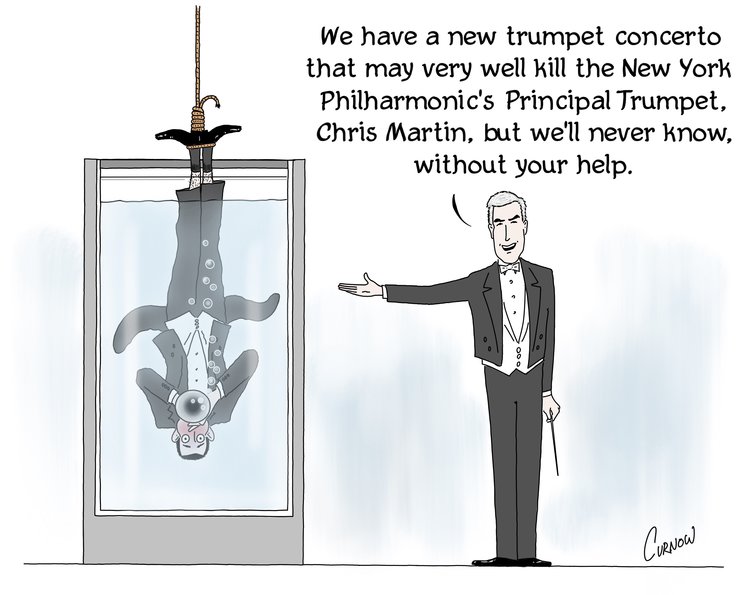I do more than my fair share of complaining about orchestra managers in these writings, but I certainly don’t think all managers are bad. There are excellent managers out there and even a few warriors among an overwhelming flock of sheep. But one thing that really gets me going is when I talk to orchestra managers (especially executives) about the qualities that characterize a good leader. Invariably this conversation has one of two possible outcomes; either I make a new friend or I make someone upset.
At some point in the conversation, the content will focus on what I consider to be an invaluable code of conduct for an orchestra executive to be an effective leader:
- An executive should be the last person to get a raise and the first person to take a pay cut in the organization.
- An executive will always be easy to find and find time to talk.
- An executive will take responsibility for their actions, even if it means harm to their career.
- An executive will never be ambiguous or lie to staff or musicians.
- An executive need to share authority and control with the musicians.
- An executive will never be afraid of being tough.
- And most importantly, an executive will be completely committed to their orchestra and be willing to risk their career for its success.
I’ve actually been cursed at to my face by orchestra managers for advocating such beliefs. Granted it’s been rare and in at least one circumstance under the influence of alcohol, but most people take issue with at least a few of those points. And given the feedback I’ve received over the years, I would have to say that I’m in the minority with these beliefs.
After all, there’s more than enough managers that have successfully demonstrated that the way to get ahead is to accept a raise when everyone else takes a pay cut, drive around in a luxury SUV while your staffers barely make more than minimum wage, blame everyone and everything else except yourself for your orchestra accumulating record levels of debt, and take-take-take from an organization until there’s nothing left to give. So why on earth would anyone want to follow an archaic code of conduct that seems right out of the Dudley Do-Right handbook?
But then I come across an individual every now and then that reinstalls my hope for the future of classical music. Most recently it happened while watching television on Wednesday evening after I finished up teaching some piano students. I was watching a segment of 60 Minuets II entitled The Strings Of Soweto. It featured an English violist I’ve never heard of before, Rosemary Nalden, and her accomplishments with the Buskaid Soweto String Project a music school in impoverished Soweto, South Africa.
I encourage you to go read the transcript via the link above and watch the video clip. What you’ll discover is an individual that meets all of my criteria for being a real leader, not just a “boss”. She’s achieved success by maintaining her principals and dedicating herself entirely to the success of the project.
Rosemary has accomplished nearly all of the tasks that orchestras in this country are only just beginning to figure out:
- She created a classical music culture among a population that by all accounts should consider that form of art useless. She didn’t have to reconnect with the population; she had to build that relevance from scratch.
- She made classical music relevant to the community by discovering a way to present classical music without “dumbing it down”
- She made classical music a mainstream form of popular art, so popular that she has to turn people away because of an overwhelming demand for her educational services.
This story goes a long way toward proving that classical music is dead. But only dead in the way we’ve grown accustomed to experiencing and delivering it. It also goes to show how self-satisfied, static and conventional Americans can become if given too much opportunity. If we’re all lucky, we’ll see a new generation of artist-managers emerge with the necessary will to accomplish here what Rosemary Nalden has half way across the world.


